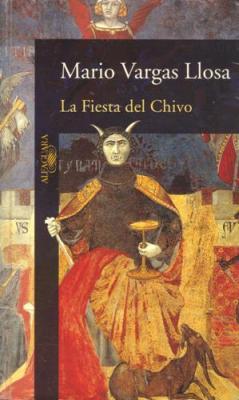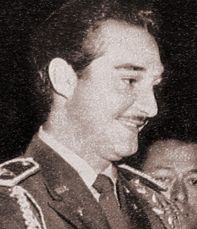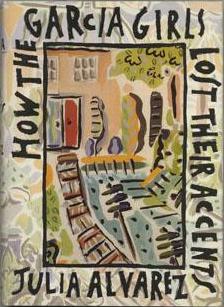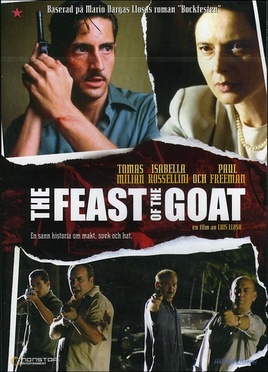Directors
| No. | Portrait | Director | Took office | Left office | Time in office |
|---|---|---|---|---|---|
| 1 | Colonel Johnny Abbes García (1924–1967) | 1957 | 1960 | 2–3 years | |
| 2 | Colonel Cándido Torres | 1960 | 1960 | 0 years | |
| 3 | Colonel Roberto Figueroa Carrión | 1961 | 1962 | 0–1 years |
The Servicio de Inteligencia Militar (SIM) (English: Military Intelligence Service) was the main secret police force and death squad during the later part of the dictatorship of Rafael Trujillo to keep control within the Dominican Republic.
Around 1957 the Department of State for Security, headed by General Arturo Espaillat was dissolved, replaced by SIM and its sister agency, the Servicio Central de Inteligencia (SCI). [1] Under the leadership of Johnny Abbes García, SIM employed thousands of people and was involved in immigration, passports, censorship, supervision of aliens, and undercover work. [2] At the Palace of Communications some fifty people intercepted and recorded domestic and foreign phone conversations. [1] Its secret activities used murder, kidnapping, extortion and terror to achieve its goals. Money was spent to lobby American legislators. [1]
In the population members of SIM were known as "caliés" (Thugs), they patrolled the streets in their black VW beetles called "cepillos" (brushes). Infamous detention centers were La Nueve (The Nine) and La Cuarenta (The Forty) where prisoners were tortured and killed.
SIM was dissolved in 1962, after the fall of the Trujillo regime.
| No. | Portrait | Director | Took office | Left office | Time in office |
|---|---|---|---|---|---|
| 1 | Colonel Johnny Abbes García (1924–1967) | 1957 | 1960 | 2–3 years | |
| 2 | Colonel Cándido Torres | 1960 | 1960 | 0 years | |
| 3 | Colonel Roberto Figueroa Carrión | 1961 | 1962 | 0–1 years |
SIM and its leader Johnny Abbes García are frequently mentioned in Mario Vargas Llosa's historical novel The Feast of the Goat and in Julia Alvarez's novel In the Time of the Butterflies .

Rafael Leónidas Trujillo Molina, nicknamed El Jefe, was a Dominican military officer and dictator who ruled the Dominican Republic from August 1930 until his assassination in May 1961. He served as president from 1930 to 1938 and again from 1942 to 1952, ruling for the rest of his life as an unelected military strongman under figurehead presidents. His rule of 31 years, known to Dominicans as the Trujillo Era, was one of the longest for a non-royal leader in the world, and centered around a personality cult of the ruling family. It was also one of the most brutal; Trujillo's security forces, including the infamous SIM, were responsible for perhaps as many as 50,000 murders. These included between 17,000 and 35,000 Haitians in the infamous Parsley massacre in 1937, which continues to affect Dominican-Haitian relations to this day.
The Autumn of the Patriarch is a 1975 novel by Gabriel García Márquez.

The Mirabal sisters were three sisters from the Dominican Republic, three of whom opposed the dictatorship of Rafael Trujillo and were involved in activities against his regime. The three sisters were assassinated on 25 November 1960. The last sister, Adela, commonly known as Dedé, who was not involved in political activities at the time, died of natural causes on 1 February 2014.

The Feast of the Goat is a 2000 novel by the Peruvian Nobel Prize in Literature laureate Mario Vargas Llosa. The book is set in the Dominican Republic and portrays the assassination of Dominican dictator Rafael Trujillo, and its aftermath, from two distinct standpoints a generation apart: during and immediately after the assassination itself, in May 1961; and thirty-five years later, in 1996. Throughout, there is also extensive reflection on the heyday of the dictatorship, in the 1950s, and its significance for the island and its inhabitants.

The National Intelligence Centre is the Spanish official intelligence agency, acting as both its foreign and domestic intelligence agency. Its headquarters are located next to the A-6 motorway near Madrid. The CNI is the successor of the Centro Superior de Información de la Defensa, the Higher Centre for Defence Intelligence. Its main target areas are North Africa and South America and it operates in more than 80 countries. CNI's official budget for 2023 is approximately €337.1 million.

In the Time of the Butterflies is a 2001 feature film, produced for the Showtime television network, directed by Mariano Barroso and based on Julia Álvarez's book of the same name. The story is a fictionalized account of the lives of the Mirabal sisters, Dominican revolutionary activists, who opposed the dictatorship of Rafael Trujillo and were assassinated on November 25, 1960.
Johnny Abbes García was the chief of the governmental intelligence office – the Servicio de Inteligencia Militar – during the dictatorship of Rafael Trujillo in the Dominican Republic. He ruled under Trujillo during the end of the Third Republic, and later served the Duvalier dynasty in Haiti.

Amado García Guerrero was one of the conspirators against, and killers of, Dominican dictator Rafael Leónidas Trujillo.

Rafael Leónidas Trujillo Martínez, better known as Ramfis Trujillo Martínez, was the son of Rafael Leónidas Trujillo, dictator of the Dominican Republic, after whose 1961 assassination he briefly held power. Nominally an army general, he lived the life of a reckless and spoiled playboy like his friend and sometime brother-in-law Porfirio Rubirosa. Remembered for his ruthlessness and cruelty, he went into exile in Spain, where he died of wounds ten days after crashing a sports car.

How the García Girls Lost Their Accents is a 1991 novel written by Dominican-American poet, novelist, and essayist Julia Alvarez. Told in reverse chronological order and narrated from shifting perspectives, the story spans more than thirty years in the lives of four sisters, beginning with their adult lives in the United States and ending with their childhood in the Dominican Republic, a country from which their family was forced to flee due to the father's opposition to Rafael Leónidas Trujillo's dictatorship.
The National Intelligence Service was an intelligence agency of the Government of Peru that existed from 1960 to 2001. It was headquartered at the Quiñones Building, the headquarters of the country's Defence Ministry.

Major General Antonio Cosme Imbert Barrera was a Dominican military officer and the 44th President of the Dominican Republic from May to August 1965.
Antonio de la Maza was a Dominican businessman based in Santo Domingo. He was an opponent of Rafael Trujillo, and was one of the principal conspirators in the assassination of the aforementioned dictator which took place on May 30, 1961.
The Agencia Nacional de Inteligencia (ANI) is the Chilean government national intelligence agency. Created in 2004, its mission is to coordinate, and advise the President on, intelligence. It is attached administratively to the Ministry of the Interior. Its current director is Gonzalo Yuseff Quiroz. The previous director was Gustavo Villalobos, who was also the last director of Directorate of Public Security and Information. ANI's budget is approximately US$4 million.
Jesús (de) Galíndez Suárez was a Spanish politician, writer and Columbia University international law professor of Basque nationalist ideology who disappeared in New York City. He was allegedly kidnapped and murdered by intelligence operatives of the Servicio de Inteligencia Militar, based on a direct order from Rafael Trujillo, the caudillo of the Dominican Republic.

Gabriel José de la Concordia García Márquez was a Colombian writer and journalist, known affectionately as Gabo or Gabito throughout Latin America. Considered one of the most significant authors of the 20th century, particularly in the Spanish language, he was awarded the 1972 Neustadt International Prize for Literature and the 1982 Nobel Prize in Literature for One Hundred Years of Solitude. He pursued a self-directed education that resulted in leaving law school for a career in journalism. From early on he showed no inhibitions in his criticism of Colombian and foreign politics. In 1958, he married Mercedes Barcha Pardo; they had two sons, Rodrigo and Gonzalo. It is a lesser known fact that Gabriel had a daughter with Mexican writer Susana Cato, part of an extramarital affair. They named her Indira, and she took her mother's last name.

The Dirección Federal de Seguridad was a Mexican intelligence agency and secret police. It was created in 1947 under Mexican president Miguel Alemán Valdés with the assistance of U.S. intelligence agencies as part of the Truman Doctrine of Soviet Containment, with the duty of preserving the internal stability of Mexico against all forms of subversion and terrorist threats. It was merged into the Centro de Investigación y Seguridad Nacional (CISEN) in 1985.

The Feast of the Goat is a 2005 Dominican-Spanish-British drama film directed by Luis Llosa and starring Tomas Milian, Isabella Rossellini, Paul Freeman, Juan Diego Botto and Stephanie Leonidas. It is based on Mario Vargas Llosa's 2000 novel of the same name.
Antonia María Teresa Mirabal Reyes de Guzmán was a surveyor and political activist from the Dominican Republic. She was one of three sisters assassinated together at the direction of the country's dictator Rafael Leónidas Trujillo.